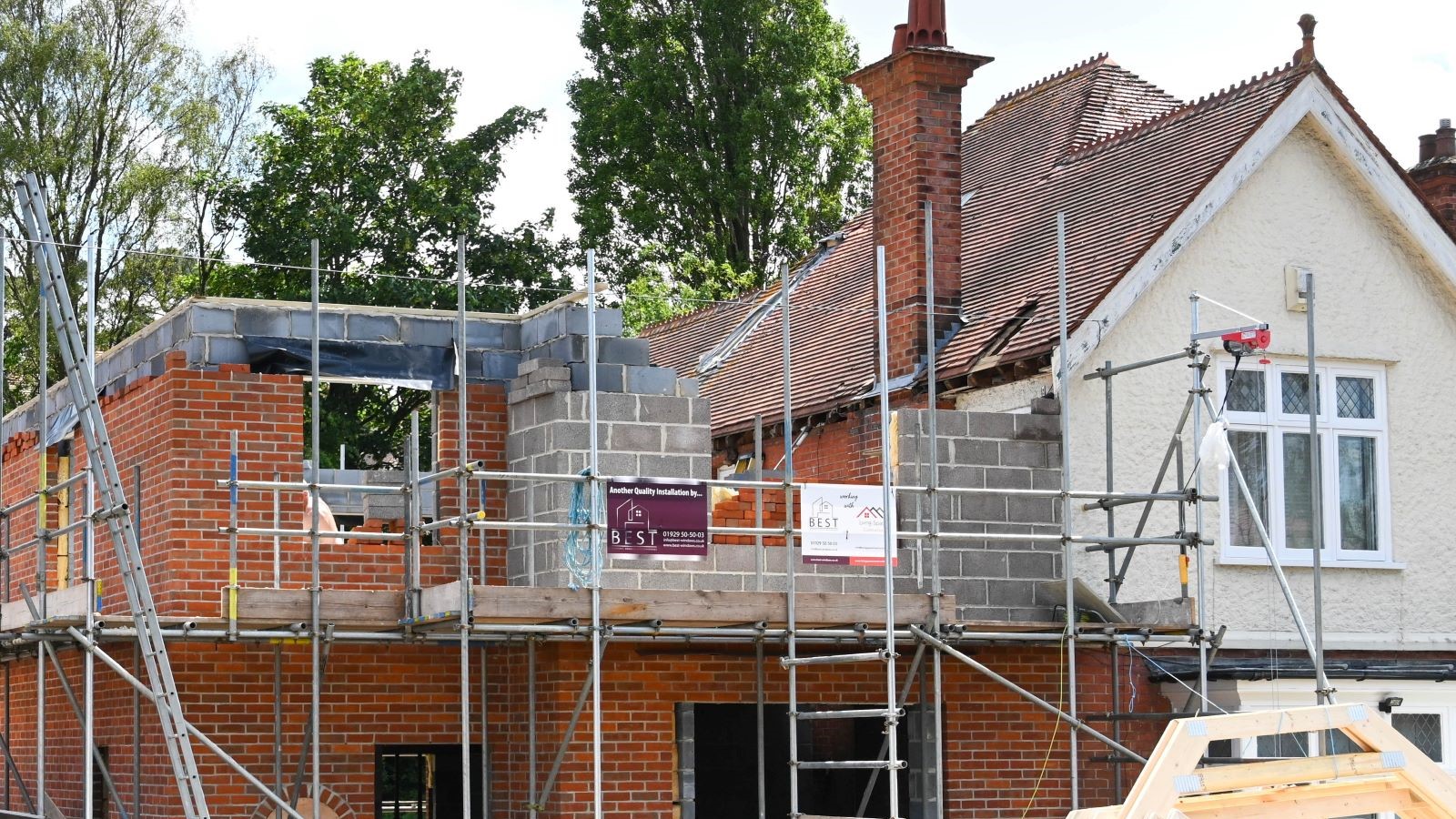Homeowners to benefit from relaxed planning rules if new bill passes
The Permitted Development Rights (Extension) Bill could make it easier for homeowners to improve their property

A new bill currently being debated in the House of Lords could make it significantly easier for homeowners in England and Wales to extend and modify their properties without needing planning permission.
The Permitted Development Rights (Extension) Bill, tabled by Lord Lucas, aims to expand permitted development rights, reducing hurdles for householders looking to make changes to their homes.
What homeowners could do without planning permission
If passed, the bill will grant homeowners the ability to undertake a variety of home improvements without needing planning approval. Under the proposed changes, householders will be able to:
- Increase the height of their roofs by up to one metre.
- Build side and rear extensions.
- Raise party walls.
- Add extra floors to bungalows.
- Construct new stories on buildings in town centres, up to four stories high.
- Install environmentally friendly upgrades, including air source heat pumps, solar panels and electric vehicle charging points.
During the debate, Lord Lucas emphasised the importance of allowing homeowners to expand their properties, arguing that "it is natural for people living in a house to want to enlarge it. People want to stay in an area for the jobs, schools, family, and community to which they are connected."
He also pointed out the potential housing benefits, stating: "Adding a bedroom so an adult child can stay at home rather than sharing a two-bedroom flat reduces the need for new housing by half a house."

Restrictions and safeguards
While the bill aims to simplify the process, certain restrictions will remain in place. Developments must not infringe on neighbours’ rights, such as the right to light, nor obstruct rights of way or easements.
Additionally, these new permitted development rights will not apply to listed buildings and local planning authorities will retain some control over design requirements to ensure structural safety, energy efficiency, and sustainable drainage.
Get the Homebuilding & Renovating Newsletter
Bring your dream home to life with expert advice, how to guides and design inspiration. Sign up for our newsletter and get two free tickets to a Homebuilding & Renovating Show near you.
For homeowners in medium to high flood-risk areas, additional conditions would apply. Properties would need to be "well served by public transport" and incorporate flood resilience measures to qualify for the relaxed planning rules. The specifics of these requirements would be set in secondary legislation.
Lord Lucas defended this approach, stating: "If we are to allow people to expand their houses, we can reasonably say that they must make them flood-proof, so that we get some of our flood prevention done as a result of allowing people to extend."
Debate over potential impact on neighbours
Despite broad support for making home extensions easier, some peers expressed concerns about the bill’s potential consequences.
Lord Jamieson cautioned that the proposed changes could have unintended effects on neighbors, particularly in densely populated areas. "It is easy to imagine how a six-metre extension to a terraced home could materially impact its neighbours," he said, calling a more balanced approach to planning deregulation.
He also pointed to the need for stronger building control measures if planning rules were relaxed. "If we are to make the planning process easier, we become more reliant on building control to enforce quality development. Building control does not cover all aspects – the classic cases being spaces for bins and parking – so there will need to be a review of building control."
What happens next?
The bill has now passed its Second Reading in the House of Lords and has been committed to a Committee of the Whole House.
This means that it will undergo detailed scrutiny, during which amendments can be proposed and debated.
If it successfully progresses through all parliamentary stages, the new planning reforms would come into effect six months after receiving royal assent. Until then, homeowners must still adhere to existing planning permission requirements.

News Editor Joseph has previously written for Today’s Media and Chambers & Partners, focusing on news for conveyancers and industry professionals. Joseph has just started his own self build project, building his own home on his family’s farm with planning permission for a timber frame, three-bedroom house in a one-acre field. The foundation work has already begun and he hopes to have the home built in the next year. Prior to this he renovated his family's home as well as doing several DIY projects, including installing a shower, building sheds, and livestock fences and shelters for the farm’s animals. Outside of homebuilding, Joseph loves rugby and has written for Rugby World, the world’s largest rugby magazine.
